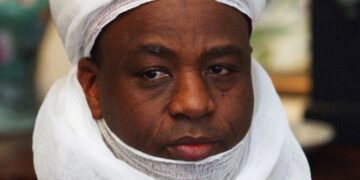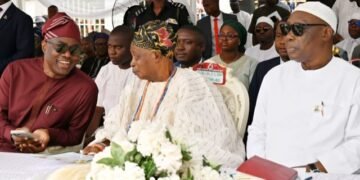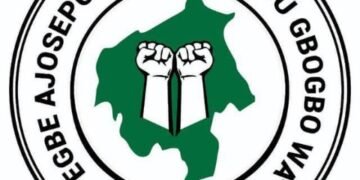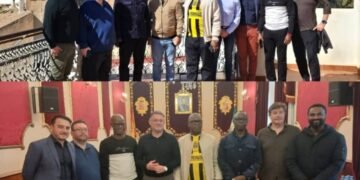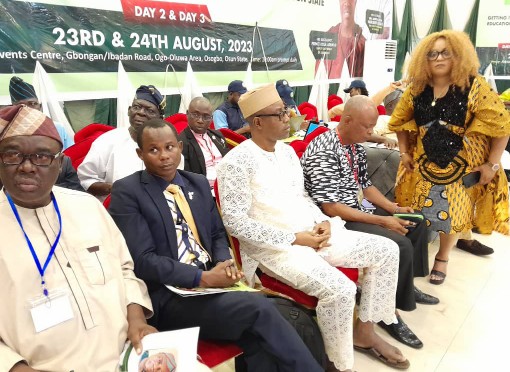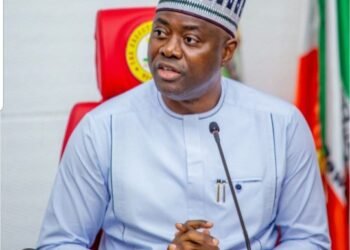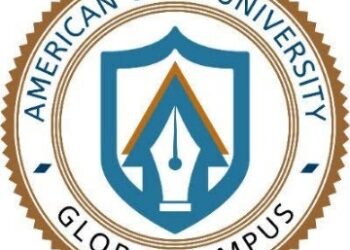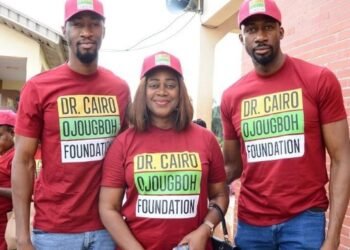An old student and National President of Muslim Grammar School, Osogbo Old Students Association, Chief Tunde Busari, has lamented the rising moral decadence in public schools in Osun State.
He observed that morality has been thrown to the wind in most of the public schools, especially secondary schools, as the pupils engaged in all sorts of social vices.
Busari, a Special Assistant (Community Matters) to the Governor Ademola Adeleke, made the observation while delivering a paper at the Osun State Education Summit, held in Osogbo on Thursday.
He thanked the state government, under the leadership of Governor Adeleke, for reviving the all-important education summit, 12 years after it was held last.
He particularly listed some of the challenges confronting his old secondary school to include parental negligence, deviant pupils, infrastructure deficiency, enrolment issues and prevalence of special examination centres.
He, however, clarified that most of the challenges were problems that have accumulated over the years, some of which he said the present administration in the state is working to resolve.
0n moral decadence, Busari said: “It is regrettable to find out the alarming rate at which pupils march on the standard moral value, which is expected to separate them from their age mates who are not attending schools.
“It is no longer news that pupils engage in social vices like smoking, drugs, thuggery among other related crimes.
“A pupil of our school was even said to have been found on the wrong side of the law and consequently picked up.”
The media aide of Governor Adeleke also put some of the problems at the doorsteps of parents, some of whom he said are not committed to the education of their children.
“It is quite disappointing that some parents refuse to show the needed commitment to their children education need.
“This non-chalant disposition is seen in the number of pupils who cannot pay their external examination fees.
“Our association [Muslim Grammar School, Osogbo Old Students Association] is often called for assistance, and we always oblige the school management,” he added.
Busari also identified the problem of deviant pupils as an hindrance to developed education in public secondary schools.
He noted that some some Senior Secondary School III pupils who, ordinarily should sit for the exams in his old school, deliberately refused to pay their registration fees.
“They find their way to what is called “special centres”, where we are told all sorts of exams malpractices take place and the examination process grossly compromised.
“This frustration forces us to struggle to raise fund among ourselves inorder to complete the official numbers of pupils needed to retain external examination centre in our school.”
He said public schools, especially is confronted with problem of enrolment as parents did not find the schools, especially Muslim Grammar School, appealing, due to location and distance.
“We also realised that parents find our school somehow unappealing to their desires because of its location and distance to the township.
“This trend naturally affects the school population negatively and put pressure on us to go out and canvass for pupils.
“Our representatives have visited the Isale-Osun Osogbo Community leaders and the Osogbo Central Mosque leaders on the need to redirect pupils to the school,” he added.
The old students association national president also lamented the state of infrastructure in Muslim Grammar School, Osogbo.
According to him, the current state of the facilities in the school is nothing to write home about.
“A secondary school which is not equipped with a standard library, laboratory, hall, decent offices, water and electricity facilities is not worth its status in the academic ranking. It is a glorified elementary school.
“And this problem is compounded by insufficient instructional materials, textbooks, notebooks, science laboratory chemicals and sports equipment,” he declared.
The governor’s media aide solicited more attention from the government and other stakeholders as a means to resolving some of the identified problems confronting public schools.
He urged the government to, as a matter of urgency, go after the so-called “special centres” and arrest and prosecute the faceless people behind them, however influential.
To succeed in the war, he advised that the government will need to establish strong collaborations with external examination bodies.
These examination bodies, he said, include the West African Examination Council (WAEC) and the National Examination Council (NECO).
He added that the government should work out practical modalities with the two bodies on how to end the criminal reign of the “special centres” and their agents in public schools.
He called on the government to raise agencies and committees that would be saddled with the responsibility of enforcing discipline in public schools.
“Pupils, found outside school premises or on the streets during school hours, should be arrested and served with necessary punishment aimed principally at rehabilitating them.
“Government also should embark on aggressive sensitisation of parents and guardians through the media and physical meetings to educate them on the benefits derivable in supporting their pupils and wards education.
“Schools should be made more attractive through sports development, which was a key hallmark of our days in the 70s and 80s.
“Sporting activities have a way of engaging the developing energy of pupils productively aside that they open doors of alternative opportunities to the pupils to excel in life.
“In other words, government should return the annual Principal Cup and National Secondary Schools Sports Federation.
“Without sounding immodest, I am a product of these sporting activities. I was selected to represent the old Oyo State at the National Sports Festival tagged ‘Kwara 85’ in December 1985.
“The experience I gathered in the camp in Ibadan and in the tournament in Ilorin encouraged me to insist in studying to higher level with a prospect of more exploits.
Busari further advised that placement of pupils and teachers should be in accordance with their proximity to the schools.
“Muslim Grammar School, Osogbo, for instance, should be a natural choice for the people of Isale-Osun, Olomola, the Farm Settlement and its environs,” he added.
He counseled that necessary infrastructure, including library, laboratory, hall, decent offices, water and electricity should be made available to make public schools attractive to parents and pupils.
Finally, he said improved welfare of teachers was equally important to commensurate with their sweat to mould pupils to skilled and responsible citizens.

